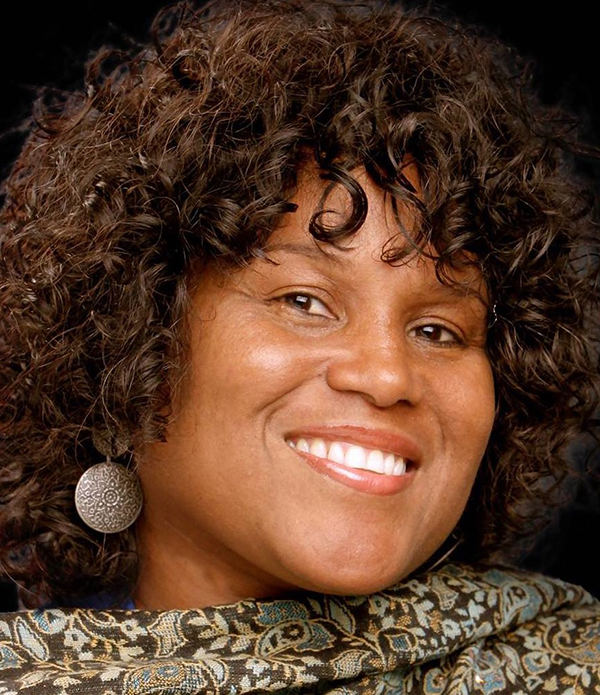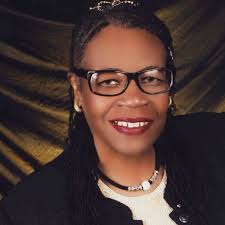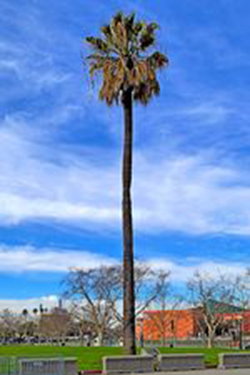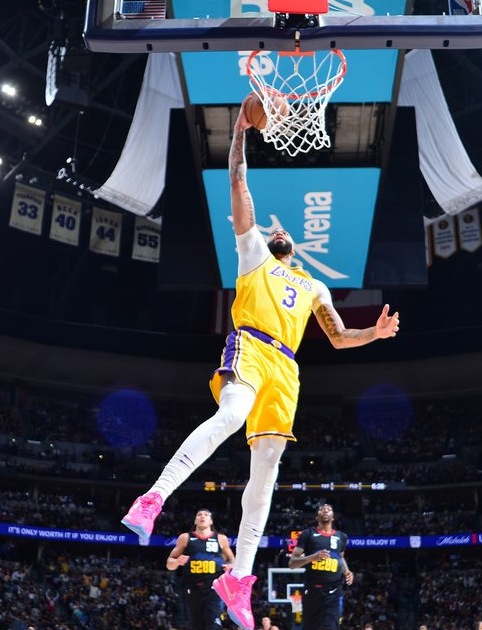
By Darlene Donloe
Contributing Writer
HOLLYWOOD — It’s been three decades since Sandra Evers-Manly got the bright idea to start a “shorts” film festival for Black female filmmakers.
That idea blossomed into the Sistas Are Doin’ It For Themselves Short Film Showcase & Virtual Film Festival, which will celebrate its 30th anniversary May 19-21, at the Directors Guild in Hollywood.
“Sistas” began as a call to the entertainment industry to acknowledge and highlight outstanding Black women directors and diverse emerging talent.
This year’s theme is A Legacy of Sisterhood & Excellence.
“When I think back on 30 years, I think there is amazing talent out there,” said Evers-Manly, founder and president of the Black Hollywood Education Resource Center. “My colleague Ralph Scott and I started seeing a large number of Black women filmmakers. There is an incredible abundance. You can’t ever tell me the talent doesn’t exist.”
The Black Hollywood Education Resource Center, a nonprofit designed to advocate, educate, research, develop and preserve the history and the future of Blacks in the film and television industries, spotlights short films created by female filmmakers of African-American descent.
Evers-Manly started the organization because she “didn’t see enough diversity in the camera or behind the scenes.”
I recently caught up with Evers-Manly, who said Sistas Are Doin’ It For Themselves “Is an opportunity for emerging African-American female directors to showcase their skills, talent and vision through film screenings, while giving the audience a chance to view and discuss the artistry, passion, and sacrifice involved in the independent film making process.”
This year’s three-day celebration, featuring some of the nation’s top emerging directors and filmmakers, includes panels, speakers and discussions.
DD: So what can the attendees expect for your 30th celebration?
SEM: Debbie Allen, who directs episodes of “Grey’s Anatomy,” will kick off the evening with opening remarks. She’s going to talk about being a Black woman director in Hollywood. She’s going to offer words of wisdom and talk about the contributions of Black women to the industry.
On Saturday, attendees can hear directly from filmmakers in a session called, Where Are They Now? Filmmakers will be walking others through their journey.
There will be a panel on careers in Hollywood. We will hear from some creatives. We will also have executives who will talk about careers in Hollywood.
There is also a panel of Black film directors. There will be directors of feature films and daytime television directors. We will have directors from “blackish,” “Wonder Years” and “Greenleaf.”
We are showing 21 films that will be shown on Friday, Saturday and Sunday.
Overall, we’re going to celebrate the contributions of Black female filmmakers.
DD: You’ve had a chance to screen the films. What can the audience expect?
SEM: When you see the films you will go, “Wow.” These ladies are ready to go to the next level. The issue is access. We have to work on how we get more Black female directors in the mix. The talent is there. We still have to break down walls and barriers.
DD: How has the showcase changed over the years?
SEM: It has grown. Normally we would showcase eight or nine films. This year we are doing 21. Then on May 22 through May 31, we will showcase 44 films online with our virtual showcase.
DD: Will all film genres be represented?
SEM: We have comedy, drama, dramedy, and animation. Two of the films we are showing [May 20] are from three of our young women. They did an animation piece. We have been following them.
Shawnee’ and Shawnelle Gibbs are twins. They will be talking about animation. Their film is “Sule and the Case of the Tiny Sparks” which is a very cute piece. They are part of the “Where Are They Now?” panel at 9 a.m. [May 20]. We are expecting 200 young people [that] morning.
We also have a young lady named Nicole Thompson who has been at Sistas twice. She did a film called, “Blackbird,” a drama about family. It’s an inspirational film. Nicole was also a scholarship recipient. She got her first directorial debut on Lifetime last year with a film called, “The Suitcase Killer.”
Her first short in 2016 was called “Harlem Blues.” This young lady knows how to direct. These are Black female directors who can walk on the set and go. We want to celebrate this Black diverse talent behind the scenes. With the talent we’ve seen, nobody can tell me they can’t find a Black female director. We need to know how we open the door for these women to get agents. Some can’t get past the first door if they don’t have one.
DD: What do emerging Black female directors bring to the table that others don’t?
SEM: They bring a different story, an abundance of different stories. They bring their unique talents. Look at the work Gina (Prince Bythewood) did last year (“The Woman King”). She stands up there with the big guys. Look at Ava (DuVernay) (“Queen Sugar” and “Selma”).
DD: Why is the Black female filmmaker’s perspective important?
SEM: There is room for everybody. There is no secret when it comes to diverse talent. This industry has a long way to go. We have seen a lot of breakthroughs. There is a lot of room to grow.
We did this festival so that the industry could see the talent. These shorts are their calling cards. Kasi (Lemmons), Gina and Ava are all women at the top of the game. Some people have no idea when they are watching certain shows that there are other Black female directors out there.
DD: How many people are you expecting that weekend?
SEM: We’re expecting 1,500 over three days. Hopefully, we’ll have thousands more online. One of our goals is to expose young people to opportunities in the industry. I told a mother just the other day that her reality of her daughter working in the industry can happen.
It’s open to everybody. It’s a battle to get in. I call the industry “the beast.”
DD: Do you see a trend in what kind of films the Black female filmmaker is making?
SEM: What I see is that they are sharing the wealth. Look at what Ava did with “Queen Sugar.” She brought in a number of Black female directors. Gina brought in a Black female editor. They are sharing the wealth. I’m exceptionally proud of that. Their influence goes beyond being a director. They are bringing up others. These women are doing it for themselves but they are also doing it for others. It’s wonderful to see.
When it comes to our stories the industry shies away. They say they don’t, but they do.
Founded in 1996, the Black Hollywood Education Resource Center is designed to remove the veil of invisibility that shrouds Blacks and other diverse groups from the main stage and to spotlight diversity and the stellar contributions of Black film and television artists who brought dignity and professionalism to even the most menial of roles.
Sistas Are Doin’ It For Themselves, Directors Guild of America, 7920 Sunset Blvd., May 19-21. For information: bherc@bherc.org, https://bherc.org/festivals/sistas-are-doin-it-for-themselves-film-festival/ or 323-957-4656.
“The Q&A” is a feature of Wave Newspapers asking provocative or engaging questions of some of L.A.’s most engaging newsmakers or celebrities.
Darlene Donloe is a freelance reporter for Wave Newspapers who covers South Los Angeles. She can be reached at ddonloe@gmail.com.












